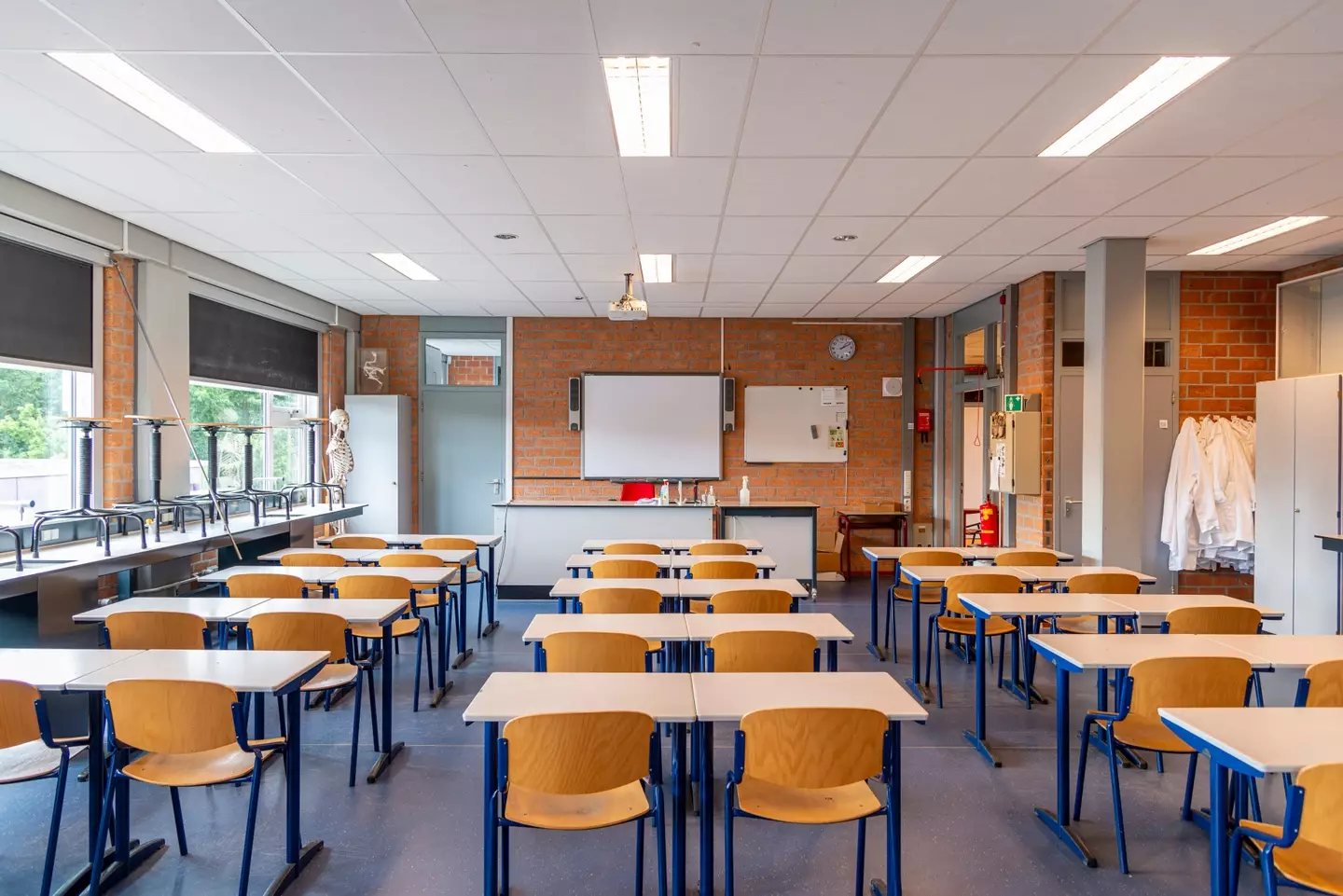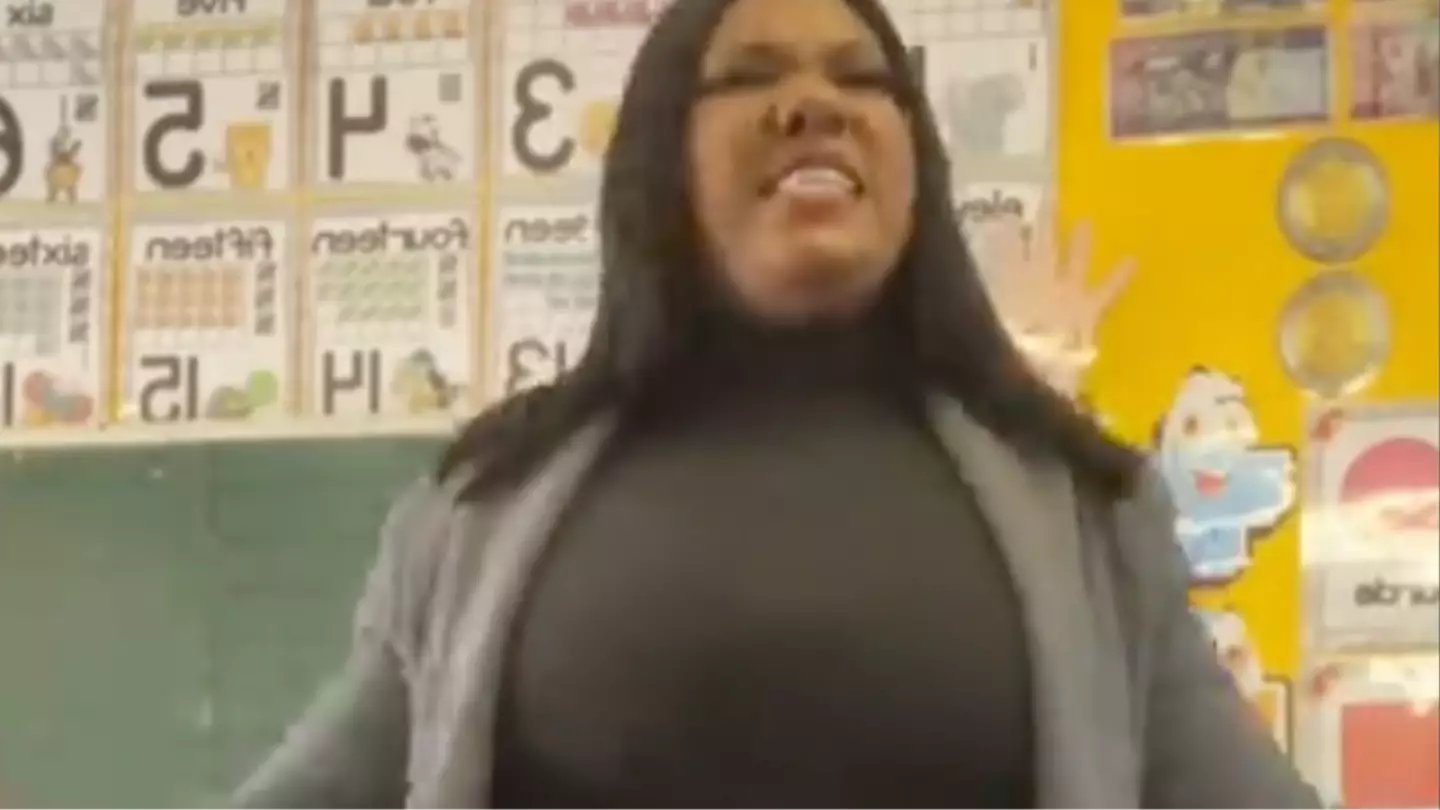A teacher has gained viral attention after sharing her ‘private parts’ song aimed at educating her students.
School provides us with knowledge in various subjects like calculus, science, and language arts, but what about understanding our own bodily autonomy?
One dedicated teacher is ensuring her students comprehend the concepts of consent and recognizing good and bad touches.
Gelda Waterboer, a first-grade teacher from Namibia, received widespread acclaim when her TikTok video about body safety in her classroom went viral.
Posted on her @gelda_waterboer account, the video shows her performing a song that emphasizes the importance of protecting their bodies.
The students can be seen and heard singing along with her guided instructions, learning about personal boundaries and appropriate and inappropriate touches.

The lyrics include: “These are my private parts, private parts, private parts, these are my private parts no one should touch them.”
Waterboer added text to the video, emphasizing the importance of conveying emotions: “Being safe. Make sure they put in the emotion.”
The post attracted over 160 million views, with many applauding her innovative approach to teaching child safety.
The song’s catchy tune and simple lyrics make it easy for children to remember how to assert their boundaries.
Waterboer later addressed some of the feedback and explained her motivation behind the song.
In a subsequent post, she shared why this subject is particularly important to her.
Waterboer stated: “We have over one million views, this makes me realize there is a great need [for] awareness that needs to be spread when it comes to the safety of the kids. I wish I had a teacher like me growing up.”
She added: “I wish I had a teacher that would firmly tell me that it is okay to say no to people you also trust.
“That you have the right over your body, I take this personally because I wish I knew that growing up.”
She elaborated: “Growing up, we have as Africans, we take these topics as taboo, we put it under the table. It’s something we need to discuss with the kids and that has really made an African child not speak up.”
Waterboer continued: “For me, as long as I’m a teacher, I have vowed that I will be the teacher that I never had growing up.”
She emphasized: “Some things need to be loud. Some things need to be aggressive. A young child is going through things every second. Every day. Every hour.”
In another post, Waterboer addressed the common question she received: ‘Who wronged the teacher?’
She explained that her song isn’t meant to be courteous to others but to protect children from potential harm.

In her video, Waterboer clarified: “Teaching our children to say ‘no’ is not just about manners – it’s about protection.”
She further stated: “Every child must know that their body belongs to them, and no one has the right to touch them in a way that feels wrong or uncomfortable.”
Waterboer stressed that this responsibility extends beyond teachers to all adults.
She highlighted the duty of every adult to foster an environment where children feel safe to express themselves.
“It is our responsibility as adults, parents and creators to create a space where children feel confident to speak up,” Waterboer noted.
“If someone touches you in a strange way – tell a trusted adult immediately,” she advised in the video. “You are not in trouble. You are not alone. You will be heard.”
For her, empowering children to find and use their voices is crucial.

